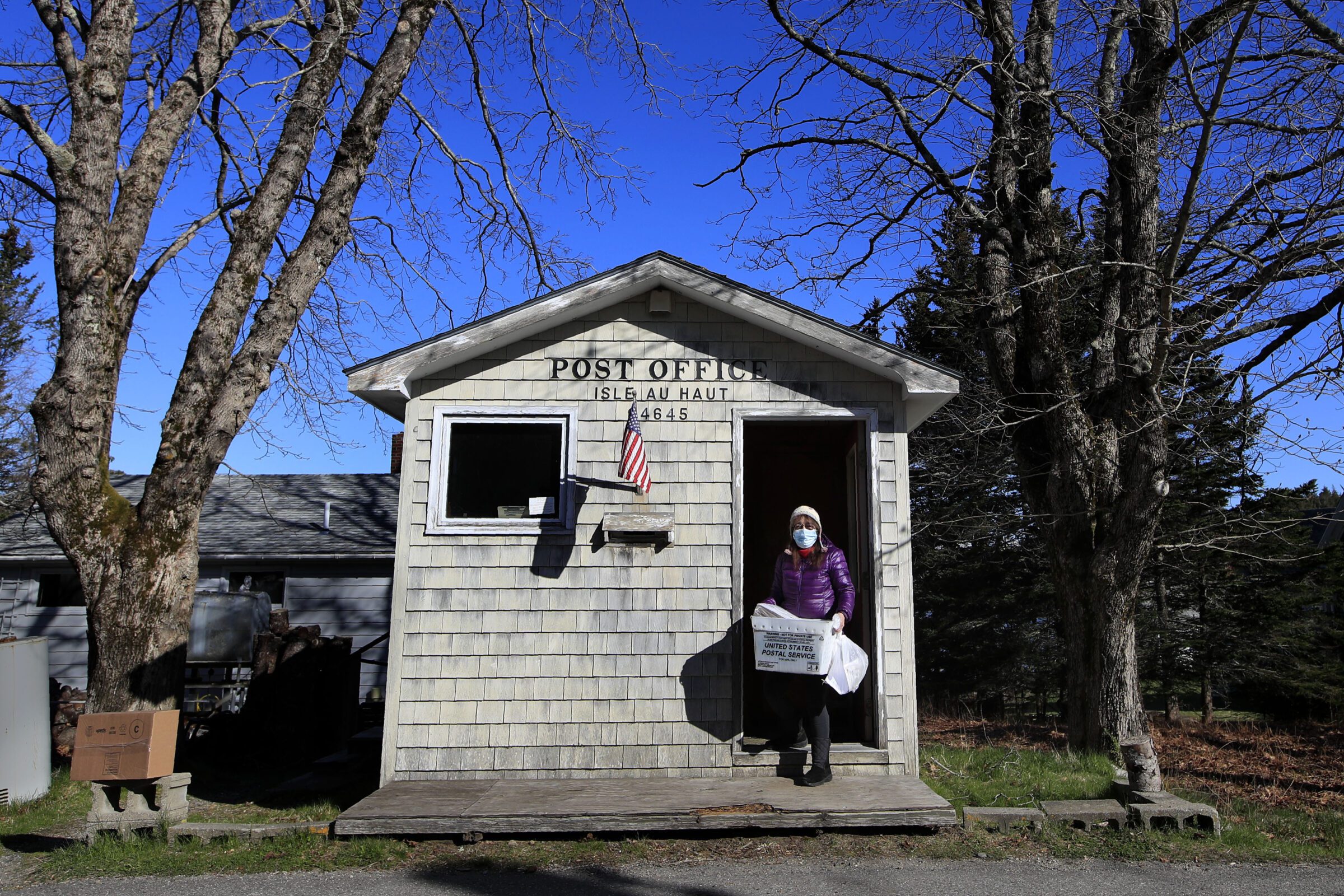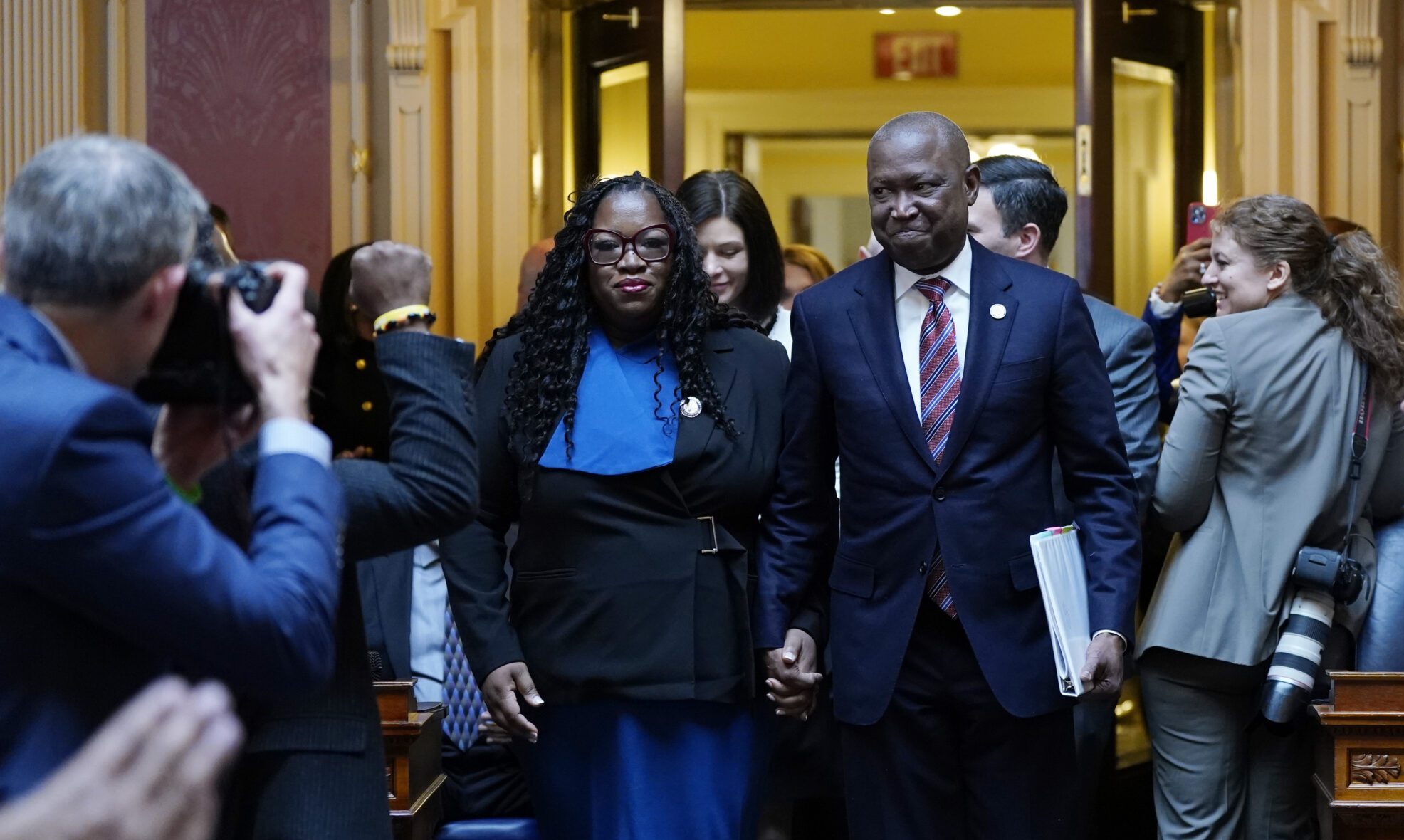Five Ways Tuesday’s Results Will Affect Voting Rules and Democracy
From felony disenfranchisement and mail voting to mid-decade gerrymanders, Tuesday delivered verdicts on election law across these five states.
| November 6, 2025
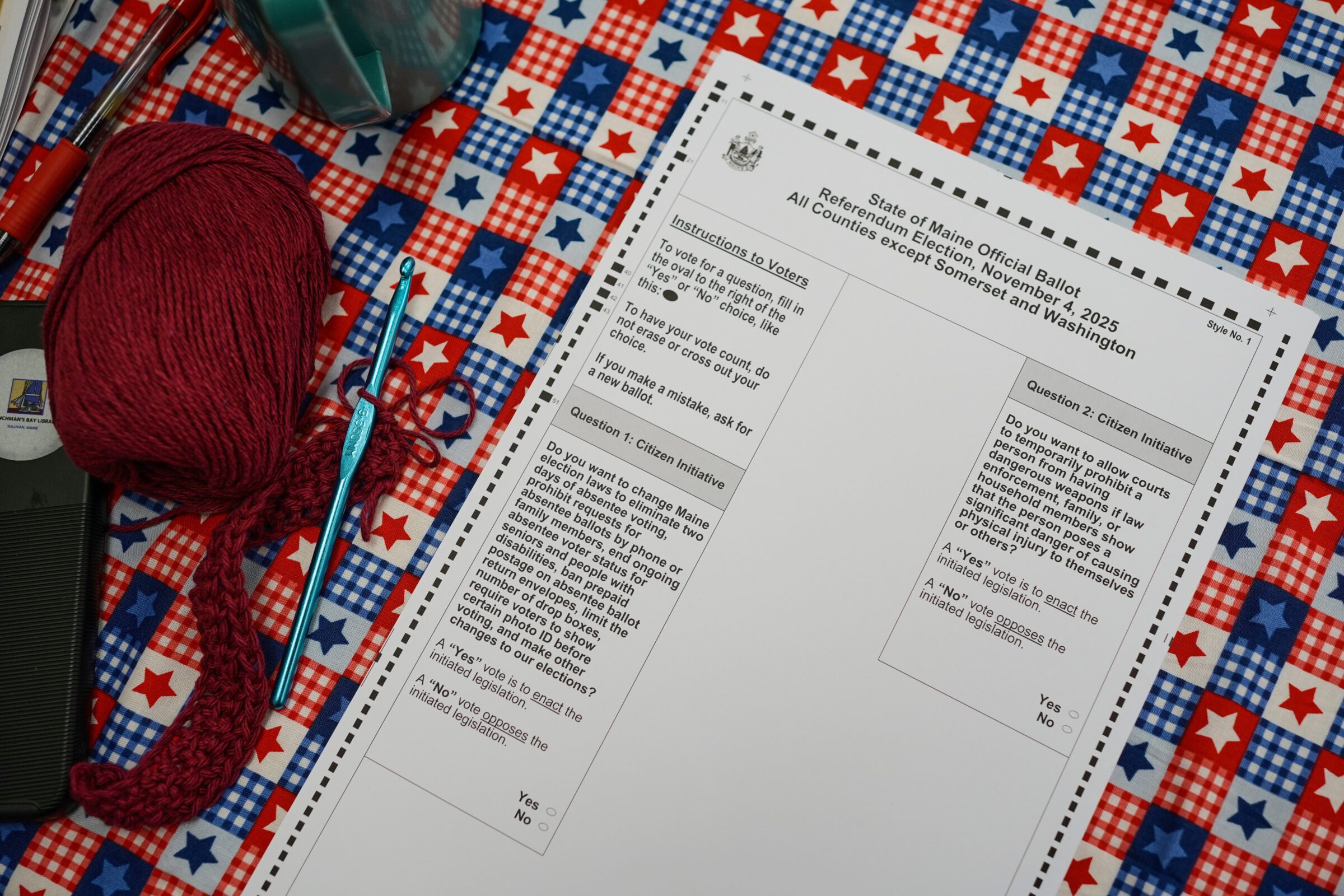
On Tuesday, mostly in the shadow of the Democratic Party’s headlining triumphs, were a series of state and local elections that carried high stakes for election law and voting rights.
Conservatives failed to restrict mail-in voting in a state key to next year’s battle for the U.S. Senate. Voters in two states boosted Democrats’ mid-decade redistricting aspirations. And voters made sure that a plan to unwind one of the nation’s harshest felony disenfranchisement schemes can proceed.
Here, we tour these results, and some others, from five states where the rules of elections were most prominently on the line—California, Maine, New York, Pennsylvania, and Virginia.
Sign up to our newsletter
For more stories on Tuesday’s local elections
Maine voters reject a conservative measure to target mail voting
Voting rights advocates drew a sigh of relief on Tuesday when a conservative-backed ballot measure to restrict voter access flopped in Maine.
The measure, Question 1, would have made vote-by-mail—the preferred method for about half of Mainers—more difficult, and also would have put in place a strict new requirement that voters provide ID in order to cast a ballot. If passed, these changes would have been in effect in time for the 2026 midterms, when Maine will vote for a new governor and host one of the country’s most closely-watched U.S. Senate elections.
Advocates in Maine—the oldest state by average age, and also the most rural—had been particularly worried about how this measure would limit access for older voters, disabled folks, and anyone who may struggle to obtain an updated ID, including college students and incarcerated people.
Measures that concern voter ID are usually popular with voters—though not always, and clearly not on Tuesday, as 64 percent of Mainers opposed Question 1.
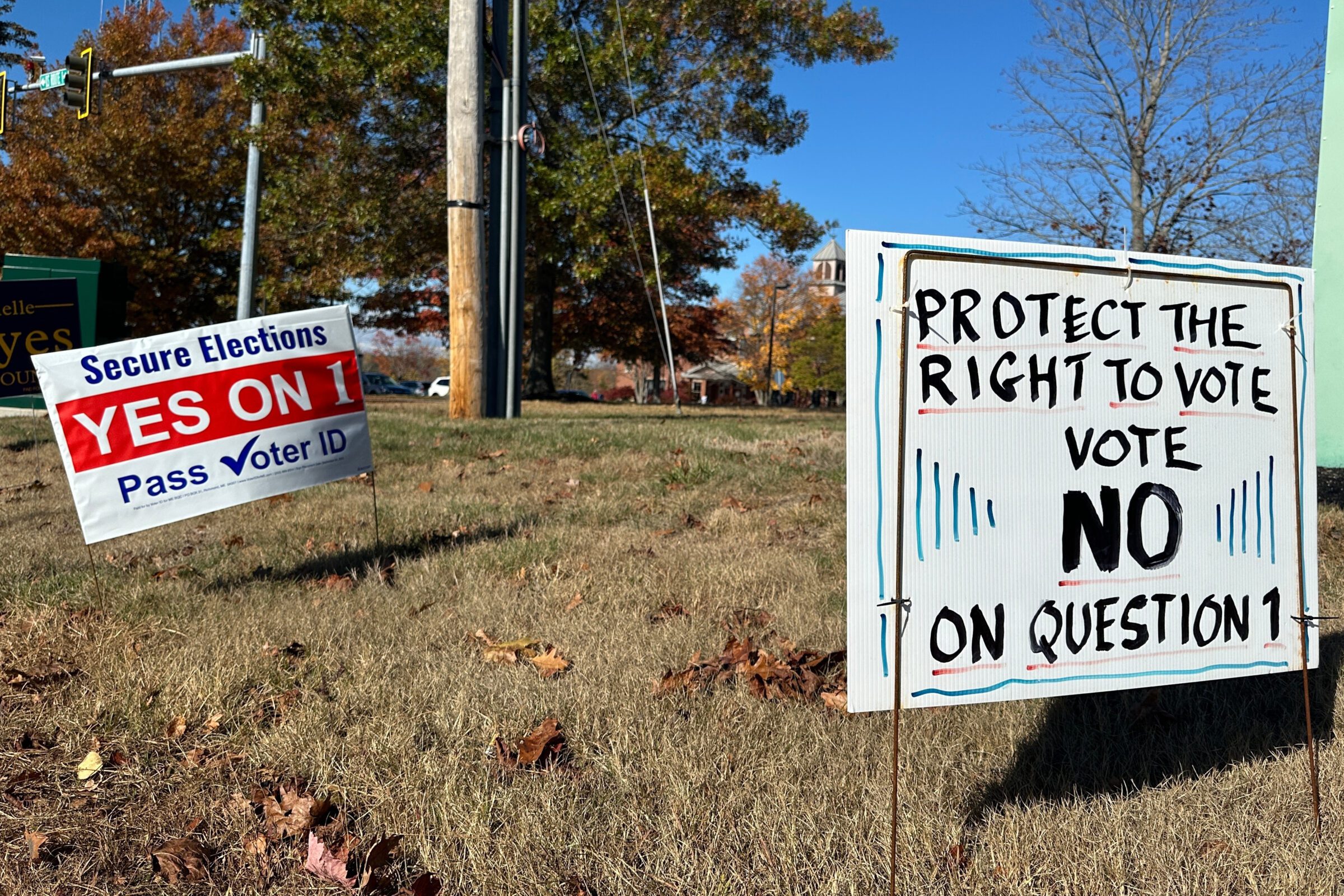
The measure mostly received only mild majorities in conservative strongholds, and overwhelming opposition in bluer parts of the state; 90 percent of voters in the city of Portland, for instance, rejected it.
“Democracy was on the ballot in Maine yesterday, and democracy won,” Maine Secretary of State Shenna Bellows, texted Bolts. Bellows, a Democrat, is running for governor next year.
“The overwhelming rejection of Question 1 is a clear affirmation of voters’ confidence in Maine elections,” Bellows said. “It sends a strong message that Mainers agree: We should not be making it harder for people to have their voices heard.”
Democratic plans to gerrymander California and Virginia move along
Pressured by President Trump, leaders in a suite of Republican-led states have revamped their congressional maps to give the GOP an advantage in the midterms, with Texas leading the way this summer and others following since.
On Tuesday, Democratic efforts to counter Republican gerrymandering took major steps forward in California and Virginia.
Californians approved Proposition 50, greenlighting Governor Gavin Newsom’s plan to circumvent the state’s independent redistricting commission and draw a new congressional map that will help Democrats flip five House seats from the GOP.
“We stood tall and we stood firm and in response to Donald Trump’s recklessness,” said Newsom on Tuesday, urging other blue states to join his push. Republicans promptly sued in federal court to try to overturn Prop 50.
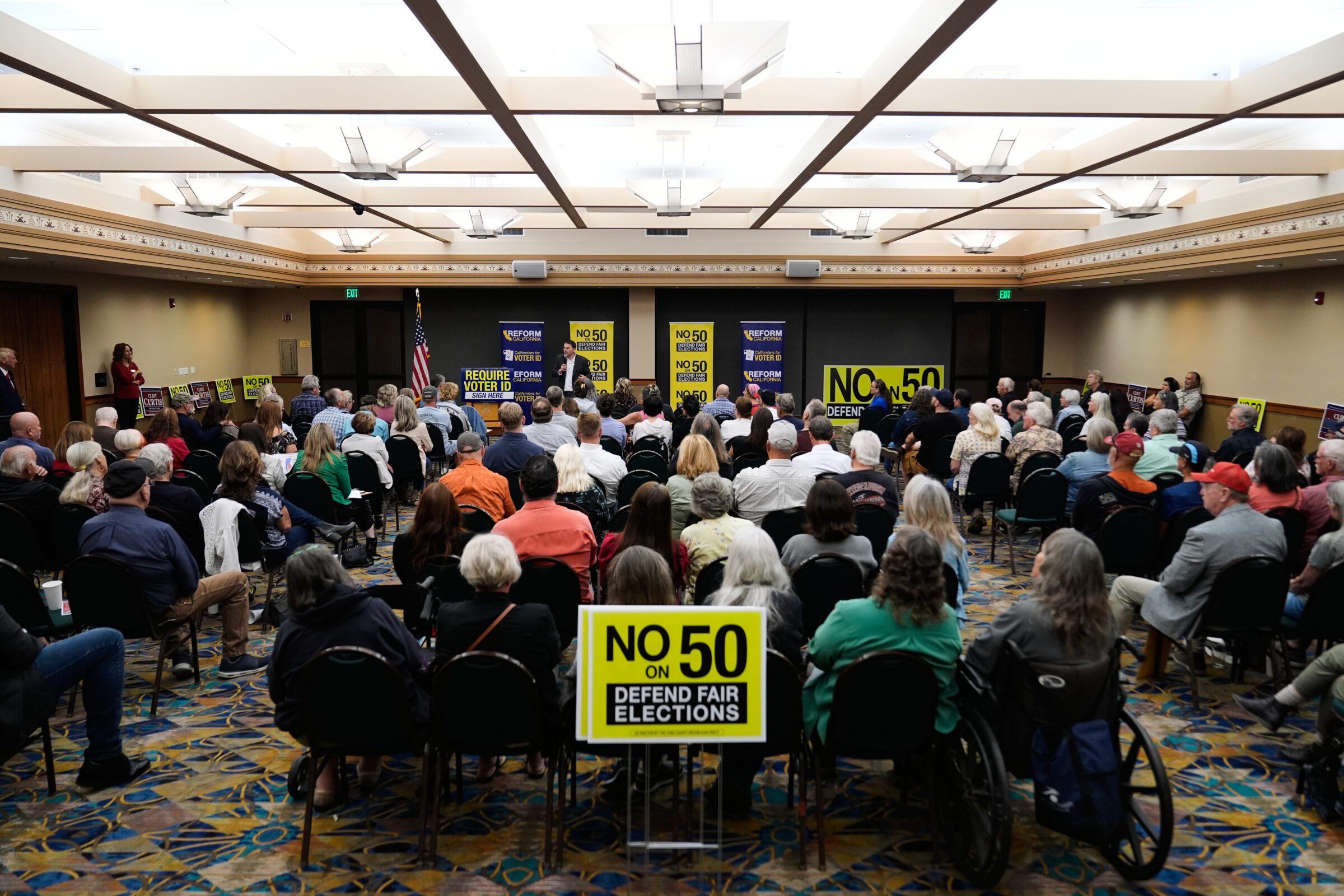
Virginia voters, meanwhile, handed Democrats a fresh, commanding majority in the state House of Delegates on Tuesday, assuring that the party can proceed with its plan to gerrymander the state ahead of the midterms.
It came as a surprise in October when Virginia Democrats announced they’d rush their own mid-decade redistricting plan. The move would leave in place Virginia’s existing, independent redistricting commission, but would create an exception in state law to circumvent that commission through the end of this decade due to other states’ gerrymandering.
The Democrat-controlled legislature quickly convened last week to pass a constitutional amendment to that effect ahead of Tuesday’s elections.
But constitutional amendments in Virginia must pass in two consecutive legislative sessions in order to advance, and so to take that next step, Democrats needed to retain the state House on Tuesday, when every seat was on the ballot. Voters delivered for Democrats, flipping a whopping 13 state House seats blue—with the race for one more seat still uncalled as of publication—and swelled Democrats’ advantage in that chamber from 51 out of 100 seats to at least 64. The state Senate, which was not up for election Tuesday, remains in Democratic hands.
Virginia Senate Majority Leader Scott Surovell told Bolts Wednesday that advancing this amendment is “going to be one of the first orders of business” when the next session opens in January.
“It’s certainly looking necessary now,” he added. “I don’t see many Republican states pumping the brakes, because they all seem to be falling in line behind their dear leader.”
If and when lawmakers do pass this amendment next session, the proposed gerrymandering plan would be put to a statewide vote next year, in time to go into effect before the midterms.
Virginia Democrats keep their ability to end lifetime disenfranchisement
The Democrats’ wins in Virginia’s legislative elections will also enable them to keep advancing a measure to end the state’s unusually harsh system of lifetime felony disenfranchisement.
Virginia’s state constitution currently provides that anyone convicted of a felony permanently loses their voting rights unless they benefit from an order by the governor. Republican Governor Glenn Youngkin in 2023 ended his predecessor’s policy of using this executive power to automatically restore the voting rights of Virginians when they leave prison.
Youngkin’s switch has denied voting rights to many thousands of Virginians who were released during his tenure.
“The overwhelming majority of people who’ve submitted their applications have been denied without any rhyme or reason,” Sheba Williams, a Richmond-based advocate who works with many Virginians trying—and, these days, generally failing—to get back their voting rights, told Bolts this week.

Democrat Abigail Spanberger, who won the governor’s race on Tuesday, could choose to bring back earlier Democratic governors’ policies of systematically restoring people’s voting rights. Her campaign did not reply to Bolts’ questions on how she’d use her executive authority, though she has said this year that she thinks people who have “served their time” should get to vote and that she supports her party’s efforts to make sure they can. “I am hoping she looks at the backlog we have now and she does what’s right for the people who’ve been denied all this time,” Williams said.
Democrats are also preparing a long-term fix to Virginia’s rules. In February, the state legislature approved a constitutional amendment to automatically restore voting rights to people exiting prison—a change that, if enacted, would remove the current gubernatorial discretion and provide certainty to people with past felonies.
Democrats need to pass the measure again next year in order to put the amendment on the 2026 ballot. And Tuesday’s outcome guaranteed Democrats will have more than enough votes to get that done. Surovell, the Senate majority leader, told Bolts this week that the legislature will advance the amendment in January.
“It’s time. It’s well past time,” Williams said. “There’s finally an opportunity to get this passed. November 2026 will be the hardest part.”
Pennsylvania Democrats preserve supreme court majority they’ve called a “backstop of democracy”
Three Democratic justices on the Pennsylvania Supreme Court won with huge margins in retention elections on Tuesday, preserving their party’s 5-2 advantage on that court, Bolts reported on Tuesday night.
This outcome is significant to matters of voting and elections, which these justices emphasized in their campaigns. Since claiming a majority in 2015, Democrats on this court have, among other actions, erased a GOP gerrymander, defended the state’s vote-by-mail law from conservative attacks, and repeatedly rejected Trump lawsuits to overturn election results in the state.
“My court is the backstop of democracy,” one of the justices on Tuesday’s ballot, Kevin Dougherty, said while campaigning in Philadelphia.
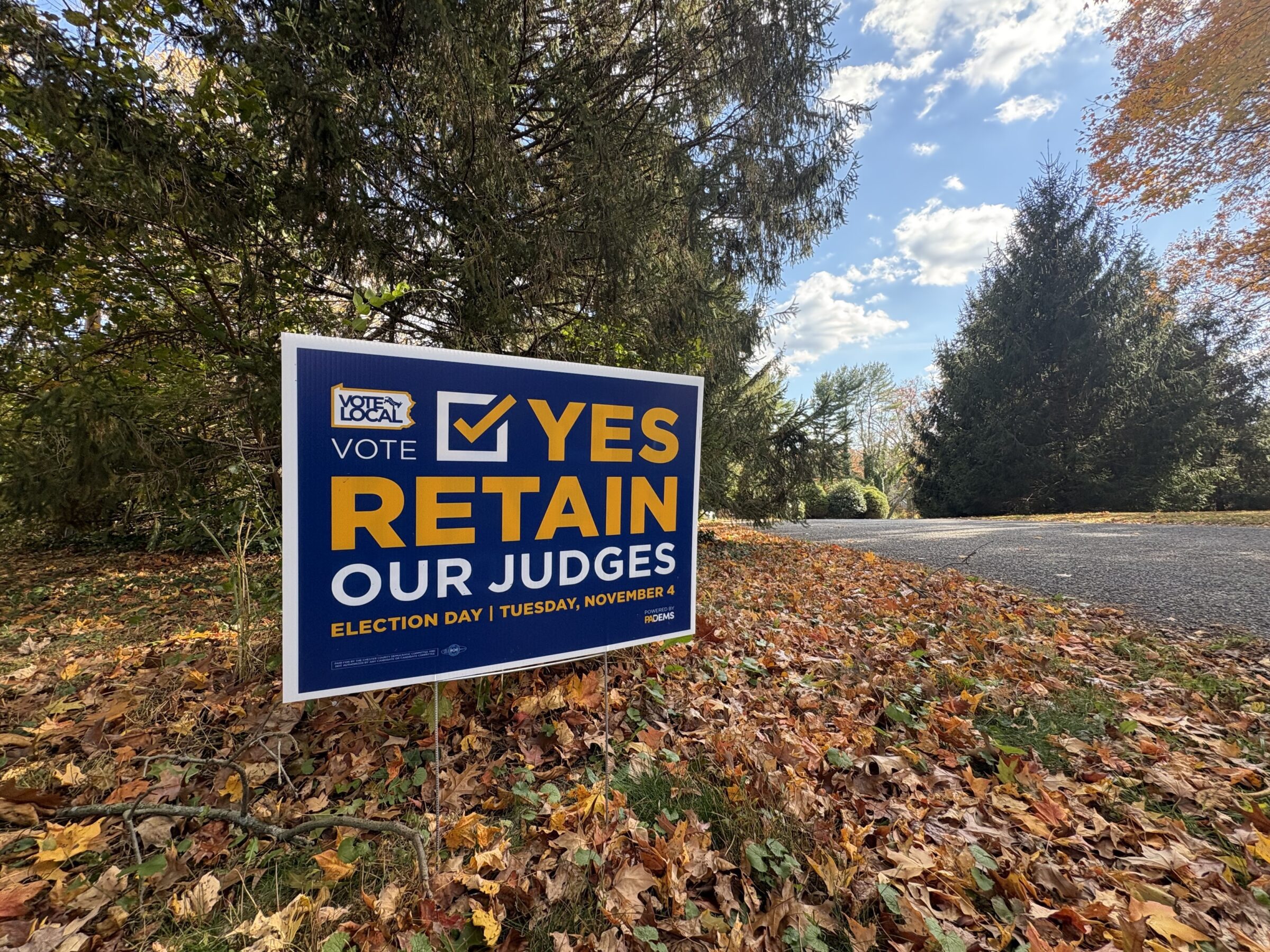
Republicans were highly motivated to take back this court in time for the next presidential election, when Pennsylvania is likely to host a new round of election cases. And so, despite voters historically and overwhelmingly favoring judicial retention, the GOP mounted an unusually high-profile campaign to take down the justices.
Liberal groups responded in force, however, and on Tuesday, backed by huge majorities in and around Philadelphia and Pittsburgh, the justices all won with at least 61% of the vote.
“The projected victory for the three of us speaks well of our democracy,” David Wecht, one of the justices who survived on Tuesday, told Bolts moments after the elections had been called in the incumbents’ favor. “We all campaigned on the basis of vindicating the Pennsylvania constitution’s free and equal elections clause, and we’re all committed to continuing to vindicate that right.”
New York City voters decline to sync local elections with national contests
All over the country, odd-year elections tend to inspire dramatically lower turnout, and many studies have shown the voters who turn out for those elections are likelier to be older and whiter than the general electorate. In recent years, voters in many parts of the country, including Los Angeles, San Francisco, Seattle, and Kansas City, have moved to erase the turnout gap by syncing their local elections with federal ones.
On Tuesday, far down on the ballot below the marquee mayoral election, New Yorkers were asked to consider Proposition 6, a measure that could have aligned mayoral elections with the presidential race and reschedule contests for other city offices. But voters rejected Proposition 6, 53 to 47 percent.
That’s a rare defeat for a reform that voters have approved easily elsewhere. Voters in Los Angeles and San Francisco approved similar measures with more than 70 percent of the vote in 2015 and 2022, respectively.

After Proposition 6’s defeat Tuesday, Ben Weinberg, public policy director of Citizens Union, a New York-based group that has long supported the change, told Bolts, “The proposal appeared on an odd-year ballot, meaning the very voters who typically turn out for local elections may not have seen the need for this change.”
Critics of Proposition 6 argued that municipal elections should not take place in the shadow of federal cycles, when voters would be much more focused and informed on the top of the ballot, and local debates would be inaudible. “If you tie it up with other concerns of international issues, you could wash away local issues,” Stephen Acquario, executive director of the New York State Association of Counties, told Bolts.
Weinberg regrets that this stance may have proved persuasive. “Unfortunately,” he said, “arguments against allowing so-called ‘uninformed’ voters to participate in local elections seemed to have gained wide support. This sentiment— often used to disenfranchise others—is powerful, and those of us in the pro-democracy camp must confront and challenge it.”
This change will be coming soon to other parts of New York State, even though not to its biggest city.
The legislature in 2023 passed a law moving local elections in towns and villages to even-numbered years. (The law did not apply to the state’s cities because that required a constitutional amendment.) Republicans sued to strike down the law, but the state’s highest court upheld that change just last month. Now local officials all over the state, such as the town supervisors of Irondequoit or Brighton, in Monroe County, will have to stand for reelection in 2026, a year earlier than they may have expected.
Sign up and stay up-to-date
Support us
Bolts is a non-profit newsroom that relies on donations, and it takes resources to produce this work. If you appreciate our value, become a monthly donor or make a contribution.


